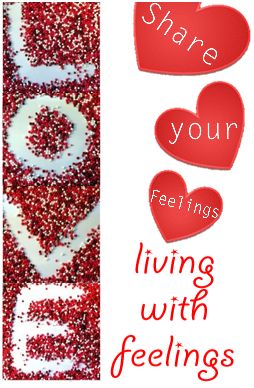
As long as we express those happy and wonderful feelings towards our partners, the more happy our relationship with them will be. Problems start when we express those not-so-happy feelings and this can easily get out of control.
Many of my relationship-coaching clients confuse between thoughts and feelings. They learned that expressing feelings was important so they added the phrase “I feel” into their communication. Unfortunately, instead of expressing feelings, they disguised thoughts as feelings.
Imagine your communication with your partner as a ball game. You can throw the ball in a way that your partner will catch or you can throw the ball in a way that will probably hurt them. One of these is called communication and is a constructive way to create a happy marriage. The other is called “the blame game” or painful communication and it contributes to struggles in a marriage. No one wants to play a ball game if they need to protect themselves from getting hurt.
Here is an example of what disguising thoughts as feelings: “I feel… that you don’t want to be with me”.
The problem with this form of communication is that the speaker does not take into consideration that their feelings are an interpretation, a perception of something that the other person has said, done or didn’t do. The conversation is no longer about his/her feeling but about their perception. You can’t feel that he or she doesn’t want to be with you because a feeling is something entirely internal to you. You can only interpret based on your partner’s behavior that it is a sign they don’t want to be with you.
This way of conversing immediately makes the other person take a defensive mode, trying to prove that he or she actually wants to be with you. In theory, you get the reassurance that you want, but in reality, it ends up going very bad. After such communication, the speaker never feels they were able to fully express themselves because the conversation is no longer about feeling. It is about interpretation of the behavior.
Here is another example: “I feel that you are not considering my feelings”.
Again, this is not a feeling. It is an interpretation of behavior. He or she cannot take into consideration any feelings because no feelings were expressed.
Another example is: “I feel you are arrogant”.
This is a form of judgment, not a way of expressing feelings. You are interpreting the other person’s behavior as arrogance but your definition of arrogance may be totally different from the other person’s definition.
In relationships, this difference in definitions is so important that many couples divorce because they forget that there no one definition of “love”. We each show love differently.
For the phrase “I feel” to be the start of expressing feelings, it needs to be followed by a feeling, not a thought/perception/understanding or conclusion.
Here is a list of feelings that can be used in communication. I will only focus here on tensed communication. Expressing positive, happy, and loving feelings doesn’t seem to be a problem for people, but those more tense and negative emotions seem to cause some trouble.

- I feel worried when you…
- I feel ashamed when you…
- I feel paniced/terrified when you…
- I feel annoyed when…
- I feel angry/furious when…
- I feel lost when…
- I feel torn between… and … when…
- I feel confused/lost/puzzled when…
- I feel frustrated when you…
- I feel embarrassed when you…
- I feel tired when you…
- I feel lonely when…
- I feel distant when you…
- I feel disturbed when you…
- I feel anxious/nervous/overwhelmed/edgy when you…
Share your feeling and the thing your partner did, said, or didn’t that has impacted it. This will allow you to express your feeling and may even help you understand how you interpreted your partner’s behavior.
Changing your focus from dysfunctional communication, to fully expressing feelings can help you figure out what got you into the conflict in the first place. This is a simple but powerful way of changing the communication in a marriage and at home in general.
If you catch yourself saying, “I feel… that you…” stop! Take into consideration that you are not expressing feelings in yourself but throwing a ball that will hurt your partner and will guarantee that when he or she holds the ball next time, it will hurt you in return. Focus on expressing feelings. You will be surprised how much more your partner will be willing to listen.
Happy marriage!
Ronit
This post is part of the series Save Your Marriage:
- Self-Regulation in Your Marriage
- How to Save Yourself from Divorce
- Marriage and Divorce Statistics
- The Marriage Institution
- Marriage is the Foundation of Families
- The Unpleasant Side of Divorce
- How to Get Things Wrong in a Marriage
- Marriage and Self Talk
- More About Self Talk
- Facts vs. Meaning in Marriage
- All Men Are… All Women Are…
- When Two Do Not Become One
- Marriage and Money
- Be Your Partner’s Best Friend
- Relationship Between Two Onions
- The Greatest Gift: Stay Together
- Marriage of Singles
- The "Right" Trap
- The Intention Trap
- Best Marriage Quotes that Will Change Your Life
- 10 Rules for Civilized Dialogue
- 10 Tips for Re-Building Trust
- The King and His Servants
- The Nitpicker
- Expressing Feelings in a Marriage
- Don’t Be On Guard
- Don’t Clam Up
- Have Good Sex to Save Your Marriage
- Trust (or The Boy Who Cried Wolf)
- Emergency Relationship Coaching Essentials
- Save Your Marriage with Better Time Management
- Choice Theory Can Save Your Marriage
- How to Have a Hot Relationship












